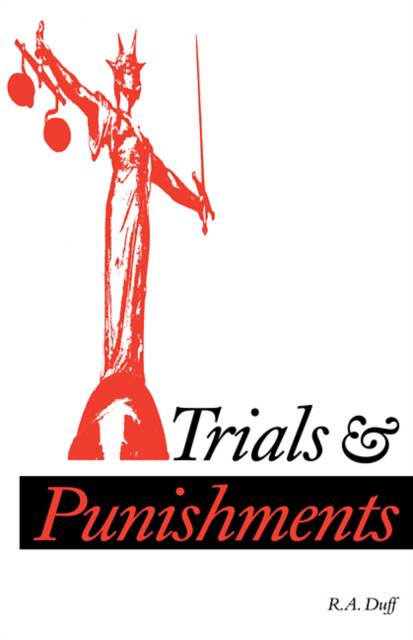
- Afhalen na 1 uur in een winkel met voorraad
- Gratis thuislevering in België vanaf € 30
- Ruim aanbod met 7 miljoen producten
- Afhalen na 1 uur in een winkel met voorraad
- Gratis thuislevering in België vanaf € 30
- Ruim aanbod met 7 miljoen producten
Zoeken
€ 76,45
+ 152 punten
Omschrijving
How can a system of criminal punishment be justified? In particular can it be justified if the moral demand that we respect each other as autonomous moral agents is taken seriously? Traditional attempts to justify punishment as a deterrent or as retribution fail, but Duff suggests that punishment can be understood as a communicative attempt to bring a wrong-doer to repent her crime. This account is supported by discussions of moral blame, of penance, of the nature of the law's demands, and of the proper meaning and purpose of the criminal process of trial and verdict: it deals both with the ideals that should inform a system of criminal law and the extent to which those ideals are actualised in existing institutions and practices. The conclusion is pessimistic: punishment cannot be justified within our legal system; and this gap between the ideal and the actual presents us with serious moral dilemmas.
Specificaties
Betrokkenen
- Auteur(s):
- Uitgeverij:
Inhoud
- Aantal bladzijden:
- 332
- Taal:
- Engels
- Reeks:
Eigenschappen
- Productcode (EAN):
- 9780521407618
- Verschijningsdatum:
- 26/04/1991
- Uitvoering:
- Paperback
- Formaat:
- Trade paperback (VS)
- Afmetingen:
- 140 mm x 216 mm
- Gewicht:
- 421 g

Alleen bij Standaard Boekhandel
+ 152 punten op je klantenkaart van Standaard Boekhandel
Beoordelingen
We publiceren alleen reviews die voldoen aan de voorwaarden voor reviews. Bekijk onze voorwaarden voor reviews.








